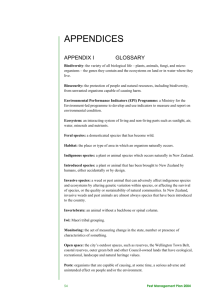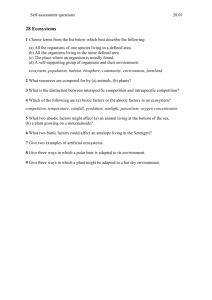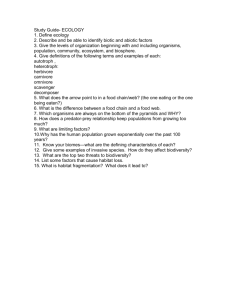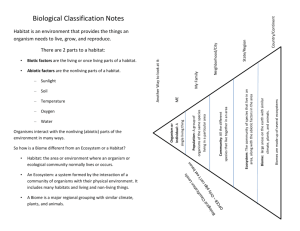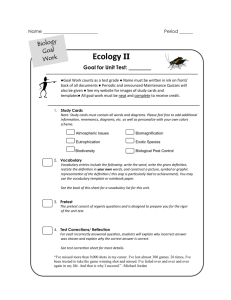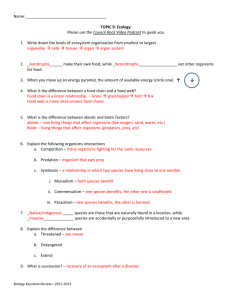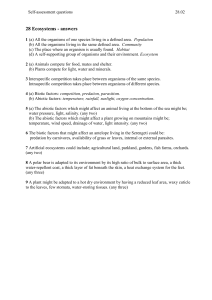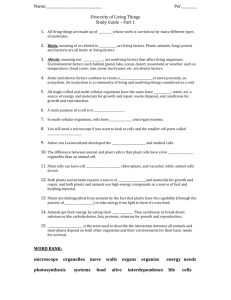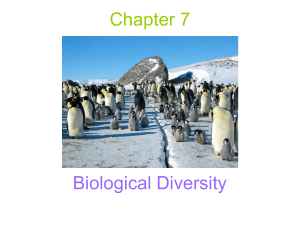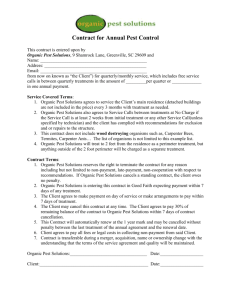“What is that, where is it found and why can it live there
advertisement
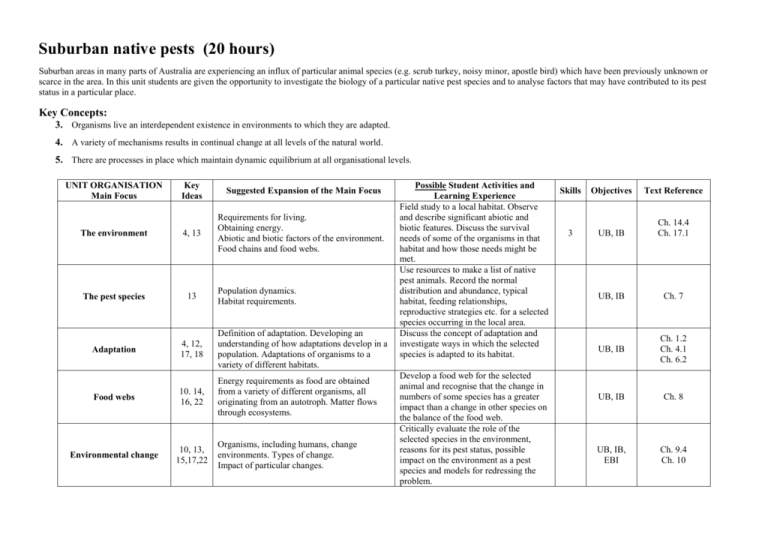
Suburban native pests (20 hours) Suburban areas in many parts of Australia are experiencing an influx of particular animal species (e.g. scrub turkey, noisy minor, apostle bird) which have been previously unknown or scarce in the area. In this unit students are given the opportunity to investigate the biology of a particular native pest species and to analyse factors that may have contributed to its pest status in a particular place. Key Concepts: 3. Organisms live an interdependent existence in environments to which they are adapted. 4. A variety of mechanisms results in continual change at all levels of the natural world. 5. There are processes in place which maintain dynamic equilibrium at all organisational levels. UNIT ORGANISATION Main Focus Key Ideas Suggested Expansion of the Main Focus The environment 4, 13 Requirements for living. Obtaining energy. Abiotic and biotic factors of the environment. Food chains and food webs. The pest species 13 Adaptation 4, 12, 17, 18 Definition of adaptation. Developing an understanding of how adaptations develop in a population. Adaptations of organisms to a variety of different habitats. Food webs 10. 14, 16, 22 Energy requirements as food are obtained from a variety of different organisms, all originating from an autotroph. Matter flows through ecosystems. Environmental change 10, 13, 15,17,22 Population dynamics. Habitat requirements. Organisms, including humans, change environments. Types of change. Impact of particular changes. Possible Student Activities and Learning Experience Field study to a local habitat. Observe and describe significant abiotic and biotic features. Discuss the survival needs of some of the organisms in that habitat and how those needs might be met. Use resources to make a list of native pest animals. Record the normal distribution and abundance, typical habitat, feeding relationships, reproductive strategies etc. for a selected species occurring in the local area. Discuss the concept of adaptation and investigate ways in which the selected species is adapted to its habitat. Develop a food web for the selected animal and recognise that the change in numbers of some species has a greater impact than a change in other species on the balance of the food web. Critically evaluate the role of the selected species in the environment, reasons for its pest status, possible impact on the environment as a pest species and models for redressing the problem. Skills Objectives Text Reference 3 UB, IB Ch. 14.4 Ch. 17.1 UB, IB Ch. 7 UB, IB Ch. 1.2 Ch. 4.1 Ch. 6.2 UB, IB Ch. 8 UB, IB, EBI Ch. 9.4 Ch. 10
